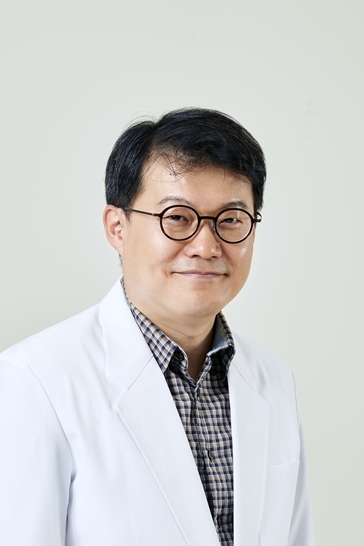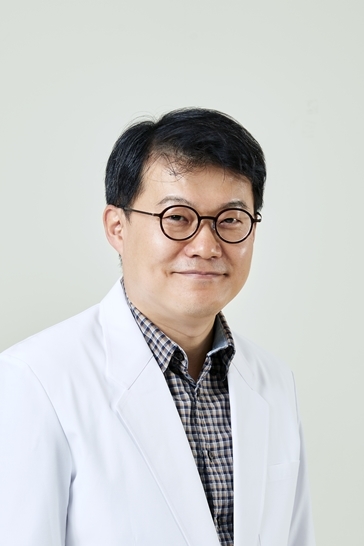
[로이슈 전여송 기자]
Thyroid cancer progresses more slowly and has a good prognosis compared to other cancers. However, 100% cure rate cannot be guaranteed, and unlike other cancers, it is a cancer that is by no means easy that must be observed for up to 10 years after treatment in some cases. In particular, women who are at high risk of developing need more attention.
The thyroid gland is a butterfly-shaped organ located in the middle of the neck that secretes thyroid hormones that the body needs. Thyroid hormones play an important role in maintaining the functioning of the body’s organs at an appropriate level and regulating metabolism. It makes the heart beat, makes the intestines move, and makes the body’s heat. In particular, it is known as a hormone essential to both mothers and fetuses as it helps the growth of the fetal nerves and musculoskeletal system.
Hoon Choi, a professor of breast and thyroid surgery at the Catholic University of Incheon St. Mary’s Hospital, said, “One of the things that patients who are undergoing surgery for thyroid cancer are most afraid of is having to take hormone drugs throughout their lives, but when the surgery is finished with half resection, all patients have to take medicine. No,” he said. “Even if you need to take the medicine, you can take it during pregnancy and breastfeeding. If you take it once a day, it has a half-life of about a week, so there is no need to fear taking hormones as it is a safe medicine that does not cause any problems even if you do not take it for a few days. “He said.
According to the ‘2018 National Cancer Registration Statistics’ published by the Ministry of Health and Welfare and the Central Cancer Registry, thyroid cancer was the second most common after gastric cancer. In particular, out of the total number of thyroid cancer incidences of 28651, females were 21,924, about 3.3 times more than males with 6,727.
Professor Choi Hoon said, “Thyroid cancer most often occurs in women in their 40s to early 50s. Women undergo rapid hormonal changes in the process of pregnancy and childbirth. In particular, autoantibodies during pregnancy cause inflammation of the thyroid gland, causing postpartum thyroiditis. “There are many causes such as thyroid cancer are presumed to be many causes in women,” he explained.
The cause of thyroid cancer, which has been identified as a single cause, is exposure to a large amount of radiation, but several genetic factors or environmental factors such as environmental hormones work in combination. In recent years, due to the increased interest in health and improved economic conditions, many patients occur through health check-ups, but these days there are many young patients, which cannot be explained by this alone.
Most micro thyroid cancers less than 1 cm are detected through ultrasound. If the nodule is large, a hard lump is felt on the thyroid gland. Also, when you swallow saliva, you can see lumps moving on both sides of the airway.
Professor Choi Hoon said, “When you consider the thyroid gland as kimbap and lumps as pickled radish, if there is a pickled radish less than 1cm in the middle of the rice, you can afford to watch it with relative peace of mind. There are times when you need to do a biopsy, so it is necessary to consult an expert when there is a lump.
According to the origin of the cancer or the degree of differentiation, it is divided into papillary cancer, follicular cancer, medullary cancer, differentiated thyroid cancer, low-differentiated thyroid cancer, undifferentiated or anaplastic cancer, etc. Fortunately, about 95% of the differentiated thyroid cancers in Korea have a good prognosis.
The principle of thyroid cancer treatment is surgery to remove the primary lesion. If one or both of the thyroid gland is excised, but only one is removed, the drug may not be taken, and if both are removed, hormone medications must be taken for life.
Many patients are concerned about complications such as voice change or hypoparathyroidism after surgery. However, the likelihood of these complications being less than 1% is remarkably low, and even if they do occur, there are treatments that improve symptoms such as correcting the position of the vocal cords or taking calcium and vitamin D drugs, so there is no need to worry too much.
In order to prevent thyroid cancer, health management such as regular lifestyle, adequate sleep and adequate exercise is important. In particular, it is advisable to avoid excessive alcohol consumption as research results have been published recently showing that excessive drinking affects the occurrence of thyroid cancer. Also, if you are suffering from thyroiditis, do not consume excessive iodine. Autoimmune thyroid disease, as well as hypothyroidism, can also affect the occurrence of cancer.
Usually, the cure rate for thyroid cancer tends to be 10 years rather than 5 years. Due to the nature of growing so slowly, there are cases where recurrence is found late and the survival rate is high. The cure rate is almost 100% in the limited circumstances where the cancer is only in the organ, and even when there is local invasion that shows little infiltration of the cancer into the surrounding lymph nodes or surrounding tissues, it is cured about 94% with constant treatment. However, when there is metastasis to other organs such as lungs or bones, the survival rate can drop to 60%.
Professor Choi Hoon said, “Thyroid cancer is not threatening life right away because it progresses slowly, but according to reports, it is a cancer that metastases unexpectedly quickly, spreading along the lymph nodes, even with minute thyroid cancer less than 1 cm, and there is a high possibility of recurrence.” He said, “We should consult with us and do not miss the appropriate time to start treatment, and even after treatment, we should continue to watch for more than 10 years in some cases.”
Reporter Jeon Yeo-song, lawissue [email protected]
<저작권자 © 로이슈, 무단 전재 및 재배포 금지>

